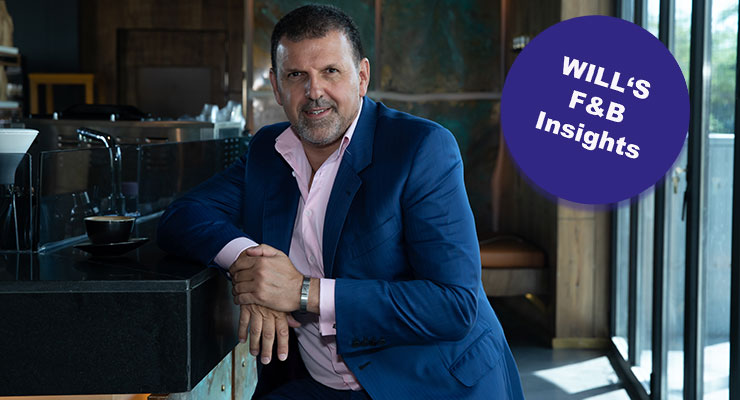In the golden age of franchising, household names like McDonald’s became global forces through years—if not decades—of careful refinement, relentless operational improvement, and disciplined brand building. They invested heavily in proving their concept before daring to replicate it, enduring years of trial, error, and painful transformation. Unfortunately, today’s marketplace is witnessing an inflationary growth of underdeveloped restaurant concepts rushing headlong into the franchise model, bypassing the very foundation on which sustainable success rests.
From Name to “Brand” in 60 Seconds
It’s an alarming trend: barely established “brands,” sometimes little more than a catchy name and a slick pitch deck, positioning themselves as the next big thing. The business model is no longer about operational excellence, unique customer value, or proven unit economics—it’s about speed. The goal? To sell the idea of a brand before the brand truly exists.
In their wake, these opportunists attempt to ride on the credibility and halo of industry titans like McDonald’s, KFC, or newer concepts like Wingstop. But unlike the pioneers they mimic, these new players often lack the infrastructure, bandwidth, or even the strategic intelligence to support their franchise partners in the long term.
Risk, Outsourced
The crux of this approach is risk displacement. Instead of absorbing the hard, expensive lessons of refining a concept themselves, these “fast-franchise” operators push that burden onto their franchisees. The franchisor collects fees up front, but when the model fails to hold in real-world conditions, it’s the franchisee who is left grappling with unsustainable operations, inconsistent quality, and, ultimately, financial loss.
This short-sighted cash grab is the antithesis of what a franchise relationship should be—a mutual partnership rooted in shared success. A franchise’s ultimate objective is the success of its partners to drive growth and long-term corporate gain—or, in modern terms, shareholder value. Without the operational backbone to guide, support, and rescue struggling franchisees, these franchisors are setting their partners up for failure.
The Myth of Easy Money
The fantasy sold by many of these so-called “lucky loser” concepts is one of quick profits and exponential expansion. The reality is that successful franchise models are forged in the slow fire of years-long concept development. They involve countless adjustments to menus, service models, supply chains, and marketing strategies—often through painful trial and error.
McDonald’s didn’t become McDonald’s by selling the dream of franchising; it became McDonald’s by proving that a single store could consistently delight customers, manage costs, and adapt to market realities before scaling up.
Leasing Teams: A Critical Responsibility
The responsibility doesn’t stop with franchisors and franchisees—it also lies with leasing teams, landlords, and property managers. Too often, these decision-makers are swayed by polished presentations and the allure of “new concepts” promising high rent and heavy footfall. But a higher rent paid today by a tenant who collapses tomorrow benefits no one—least of all the customers of such an asset, who face the disruption of closures and declining tenant quality.
Leasing teams must be discerning, asking the hard questions: Has this concept been stress-tested? Does the operator have the operational depth to sustain growth? Are they prepared to weather the inevitable growing pains? The skill of curating and considering more than just the rental income will become unavoidable if assets are to stand out in their environment.
The Cost of Inflated Hype
The rush to franchise undercooked restaurant, café, or snack concepts is more than a problem for individual investors—it erodes trust in the industry as a whole. Every failed outlet chips away at consumer confidence, every abandoned unit leaves a scar on prime retail space, and every disillusioned franchisee becomes a cautionary tale that makes the next genuine innovator’s journey even harder.
If the industry wants to protect its reputation and foster long-term success, it must reject the culture of fast-franchising and return to the fundamentals: proven concepts, strategic growth, and unwavering support for every unit bearing the brand’s name.
Solutions Are Within Reach but Require Commitment
If developers or mall operators genuinely want to support start-up restaurant concepts, they should reposition themselves not merely as landlords but as incubators. This means establishing the infrastructure to provide external consulting, operational training, and ongoing oversight—resources that can help fledgling brands survive the treacherous early years. Without such structured support, simply leasing space to an unproven operator only increases the likelihood of failure, leaving empty units, disillusioned tenants, and eroded customer trust in its wake. An incubator mindset aligns both landlord and tenant interests toward sustainable growth, rather than short-term rent gains at the expense of long-term viability.

Will Odwarka
Will Odwarka is the Founder and CEO of Dubai-based firm Heartatwork Hospitality Consulting since 2019, and a member of the ACROSS Advisory Board. Born and raised in Vienna, Austria, he has 30+ years of experience leading international strategic growth and development, Franchise and partner management, and F&B operations. He successfully opened over 1000+ outlets in over 40 countries for renowned global players such as McDonald’s, Starbucks, Burger King, Costa, and Wendy’s and smaller players like Creamscafe and Coffeeshopcompany. He strongly focuses on international market entry for F&B players, brand and investor scouting, and AI in hospitality in the Middle East and Europe.







